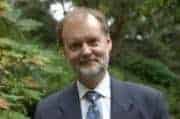 Larry Hurtado (internationally recognized scholar of New Testament and Christians origins and recently retired from the University of Edinburgh) posted today a hard-hitting commentary on the current state of Christian academic institutions, where administrators shoot their faculty first and ask questions later, or not at all.
Larry Hurtado (internationally recognized scholar of New Testament and Christians origins and recently retired from the University of Edinburgh) posted today a hard-hitting commentary on the current state of Christian academic institutions, where administrators shoot their faculty first and ask questions later, or not at all.
Hurtado has become quite exasperated at the unreasonable and dictatorial manner in which good scholars are dismissed from their academic posts for holding positions deemed outside of the bounds without due process and a genuine academic exchange of ideas.
Hurtado does not mention any particular instance, which is completely understandable, but anyone living in the Christian scholarly world knows exactly what he is talking about. I can attest personally to Hurtado’s observations; hardly a month goes by without me hearing directly or indirectly of a professor who was precipitously dismissed or forced to resign with little warning and without given an appropriate and fair venue (i.e., consistent with Christian morality) for adjudicating grievances. The situation is reaching epidemic proportions.
Hurtado asks:
What kind of “academic” institution handles matters in such a disgracefully unfair, unreasonable and unreasoning, and dictatorial manner? What kind of “Christian” institution is so narrow, so ungracious, so unkind, so Stalinesque as to handle things this way? What does it say about the “faith” held, how nervous, uncertain, jittery, and reactionary it must be? (As someone once said about such matters, “With ‘friends’ like these, Jesus doesn’t need enemies!”)
My one word answer: fear.
Fear of criticism from donors and others deemed influential or significant.
Fear of facing that possibility that one’s tradition may need to change.
Fear of being wrong.
Fear of man rather than God.
Hurtado ends on an apocalyptic note:
The incidents that moved me to write this are shameful. Maybe the administrators responsible will try to reassure themselves that they’ve avoided any questions from their boards or constituencies, or pacified such. But Christians also profess that there is a higher judge to whom we will answer, and, to judge from the biblical testimony, I rather suspect that this judge is not so likely to approve the sort of actions I refer to here. So, if these people ever ponder their actions, in the wee hours of the morning or in times of any honest prayer and reflection, I wonder how they justify their actions to that judge. How do they account for their cowardice in ducking their responsibilities as academic leaders to help institutional boards and religious constituencies appreciate the work of academics, develop the confidence in their faith to allow a healthy investigation of matters, distinguish between central and peripheral matters, and above all to behave in a manner that reflects the Christ whom they profess?
It is good to see such seasoned and respected members of the academic community taking a stand against such behavior. One reason it continues is because, to borrow a familiar phrase, “good men (and women) do nothing.” Hurtado is a good man doing something.
You can read the entire post here.
